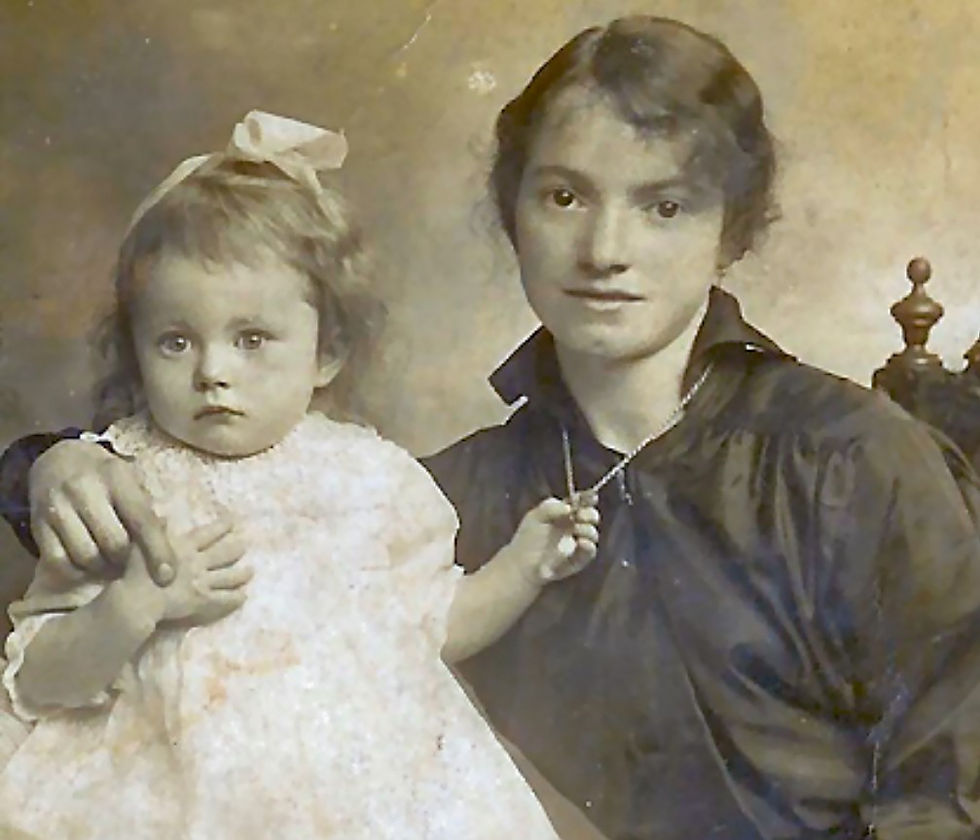The White Flower
- Claire Jordan
- Apr 21, 2022
- 4 min read

Please let’s spare a thought today for brave, smart, gentle Bristol-born Richard (Dick) Tanner.
His family earned enough from farming the Gloucestershire fields to be able to send him to the prestigious Colston School in Bristol to train as a clerk; his Mum Charlotte was a private school mistress herself but both she and his Dad were gone by the time he was 15.
His schooling complete, he decided to head across the world to make a new life in Australia.
But he very much took with him in his heart the people back home whom he loved and when it came time to make out his Will, as a soldier heading for battle, he would remember them all with endearing precision.
He enlisted into the 4th Infantry Battalion of the AIF on 19thAugust 1914 at Randwick, New South Wales, and sailed for the Old World a month later, on 20th October.
After arriving in Egypt on 2nd December for training, on 5th April 1915, he embarked with his 4th Battalion at Alexandria aboard the SS Lake Michigan.
They were to be part of the initial, toweringly brave landings on the Gallipoli peninsula on 25th April, wading ashore into the bullets and shells and blood of their friends in the second and third waves of what was really the first D-Day.
The Battalion’s commander, Lt Col AJO Thompson was killed almost immediately.
Richard landed a Private but three days later, so many of the Battalion were dead, he was promoted in the field.
They were then tasked with holding the beach-head from the enemy’s determined and continuous counter-attacks. At some point, he was wounded in the hand and this injury turned septic, forcing him to be medically evacuated to Mudros at the end of July.
He spent six weeks in hospital being patched up and was then sent back to his 4th Battalion who were still clinging on to the utter misery that Gallipoli had become.
He was promoted again and eventually evacuated with his Battalion in the final days of 1915 when the decision had been taken that the situation was entirely impossible and the only possible course of action now was a tactical withdrawal.
As the first day of 1916 dawned, Richard was back in Alexandria and it is not hard to imagine the dark thoughts they all must have entertained at finding themselves back where they had started a disastrous eight months earlier.
There are some painful weeks of re-grouping and another promotion to Sergeant for Richard, before his 4th AIF are now sent to the Western Front, landing at Marseilles in the last days of March 1916 ready for the summer.
And the Somme.
And it is on the Somme, in the middle of its Battle on 19th August, at a dread place called Mouquet Farm (known always to the Boys as Mucky Farm), that Richard’s luck runs out.
The Germans had fortified the farm buildings into an impregnable position made up entirely of reinforced concrete to protect the enemy defenders and machine-gun emplacements with interlocking fields of fire to annihilate the men charged time and time again with attacking it.
Richard is gun-shot through the spinal cord and at the age of 32, is rendered paraplegic.
He is evacuated back to the coast, but dies five days later of his wounds at the St John’s Ambulance Brigade Hospital at Etaples on 24th August.
His Will, made out the previous summer, leaves very clear instructions about how his £339 18s 6d is to be distributed:
“In the event of my death, I give £25 to (Mrs) Annie Boulton, Casey House, Withington, Glos, England and I give £50 to Rosa Emma Foxwell (spinster) of Wotton-under-Edge, Glos, England. I give and bequeath the whole of my real and personal estate whether in possessions, reversion, remainder or expectancy, except the two bequests aforementioned, to my brother Walter John Tanner… and my sister Mrs Alice Maud Marchant… to be equally divided between them, share and share alike.”
Although he doesn’t make it clear, Rosa was a similar age to Richard’s Mum and lived and worked her whole life in his home village of Wotton-under-Edge in Gloucestershire as a post mistress.
I think perhaps Rosa was a sort of maternal figure for him after his Mum died.
Perhaps it was she who encouraged him to follow his dreams Down Under.
When Rosa died at the age of 80 in 1939, she left behind her the tremendous sum of almost £4000. She had worked her whole life, never married and Richard’s £50 bequest probably remained with her for the rest of her life.
Neither is it obvious quite who Mrs Annie Boulton might have been, but again, a little bit of digging finds 52 year old Annie living at Casey Compton House in 1911, wife to the farm bailiff and mother to 12 children. I think Annie, too, had looked after Richard and younger brother and sister after their parents died.
It was left to his brother Walter to choose and fund the epitaph for Richard’s headstone at the beautiful #CWGC cemetery-city at Etaples (pictured above and below):
“Our Dear Dick. Wearing the White Flower of a Blameless Life.”







Comments